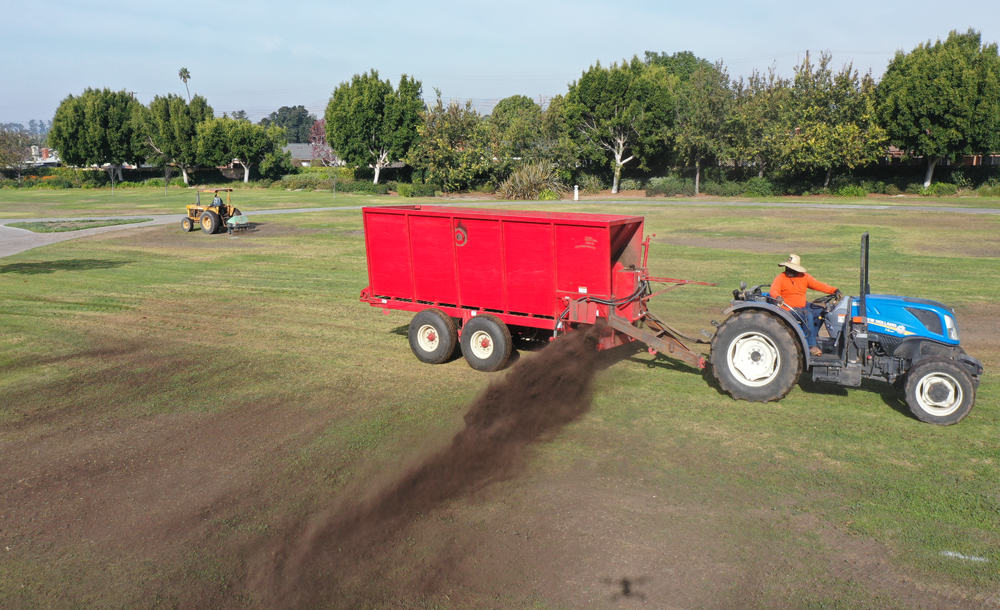Agromin, one of California’s largest organic waste recyclers, has launched California Compost to help California jurisdictions assess, source and procure organic waste tonnage to comply with California SB 1383.
SB 1383 goes into effect January 1, 2022. It is designed to reduce state methane gas emissions to combat climate change by cutting down on the amount of organic waste deposited into landfills. According to CalRecycle, organic waste in landfills accounts for 20 percent of the state’s methane gas emissions. Methane gas is 84 times more potent than carbon dioxide.
Jurisdictions will now be required to procure and use organic waste products such as compost and mulch instead of sending its organic waste to landfills.
Article 12 of SB 1383 outlines the steps city, county and other jurisdictions in the state must take to procure and track recovered organic waste products. CalRecycle has assigned the amount of organic waste that must be procured and used by each jurisdiction annually based on the jurisdiction’s population.
The California Compost website provides a free procurement calculator with information on how much compost, mulch or renewable energy must be procured and used by a specific jurisdiction each year. It then enables jurisdictions to establish an organic product acquisition and distribution program to meet Article 12 requirements. California Compost provides real-time jurisdiction tracking of all purchases as they apply towards meeting their CalRecycle reporting requirements.
“California Compost provides jurisdictions with all they need to develop, implement and track their procurement program,” says Bill Camarillo, Agromin CEO.
Available green recycled products include Agromin’s OMRI Listed Compost 100 for public landscapes and farmland use, 100 percent recycled ES-2 Top Dressing wood mulch used to cool the root zone, reduce moisture and control erosion and weeds and Decorative Mulch, a top dressing for parks, street medians, flowerbeds and other landscapes.
SB 1383’s goal is to decrease methane gas emissions from landfills by reducing the amount of organic waste deposited in landfills by 75 percent by 2025 (using 2014 numbers as a baseline).
“If we can significantly reduce the methane gas emissions from landfills, California can make a real difference in the fight against climate change,” says Camarillo. “Getting the procurement programs up and running can be challenging, but in the end, we’ll have healthier soil, cleaner air, and create green jobs to help the economy.”
For more information about California Compost and Article 12 compliance options, go to www.CaliforniaCompost.net or reach out to our SB 1383 point person Kekoa Walea: [email protected], 916-708-4670.
About Agromin:
Agromin, headquartered in Oxnard, Calif., manufactures earth-friendly soil products for farmers, government entities, landscapers and gardeners. Agromin is the organics recycler for over 200 California communities, making it one of the largest organics recyclers in the state. Each year, Agromin receives more than 1.2 million tons of organic material and then uses a safe, natural and sustainable process to transform the material into more than 300 eco-friendly soil products for landscape, agriculture, consumer and energy markets. The results are more vigorous and healthier plants and gardens, and on the conservation side, the opportunity to close the recycling loop, allowing more room in landfills and reducing greenhouse gas emissions. Agromin is a U.S. Composting Council Composter of the Year recipient.

